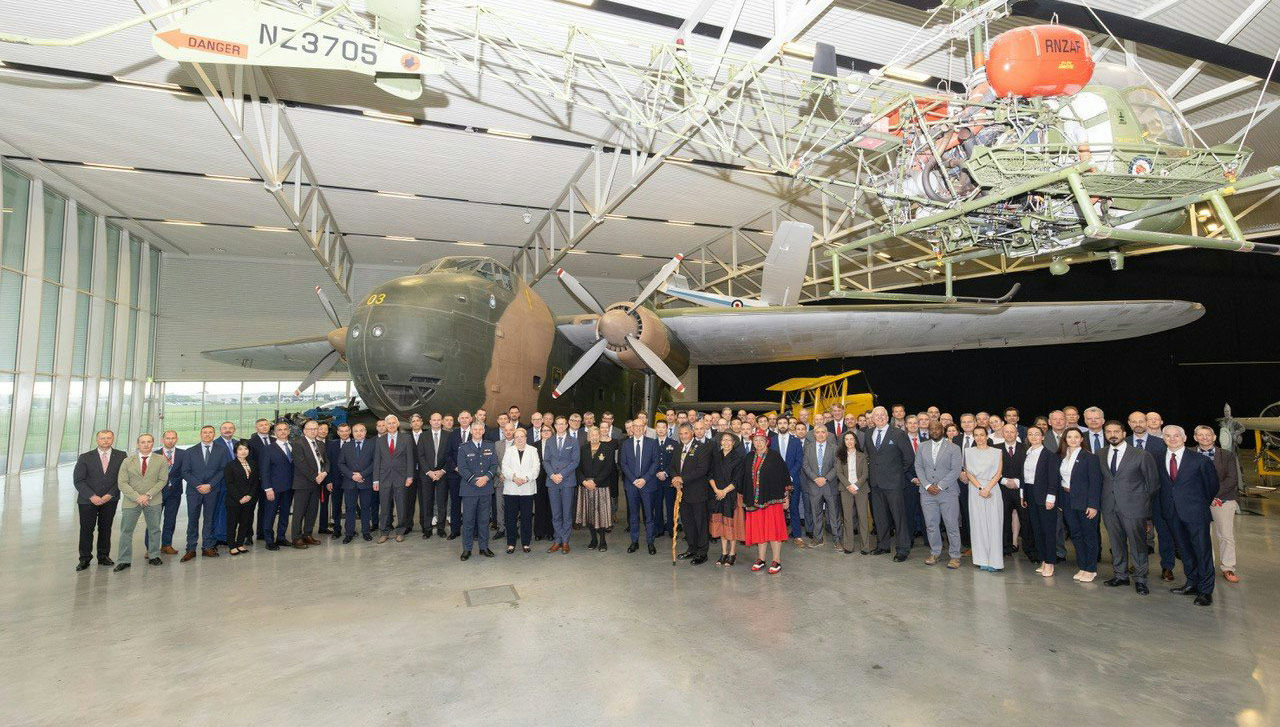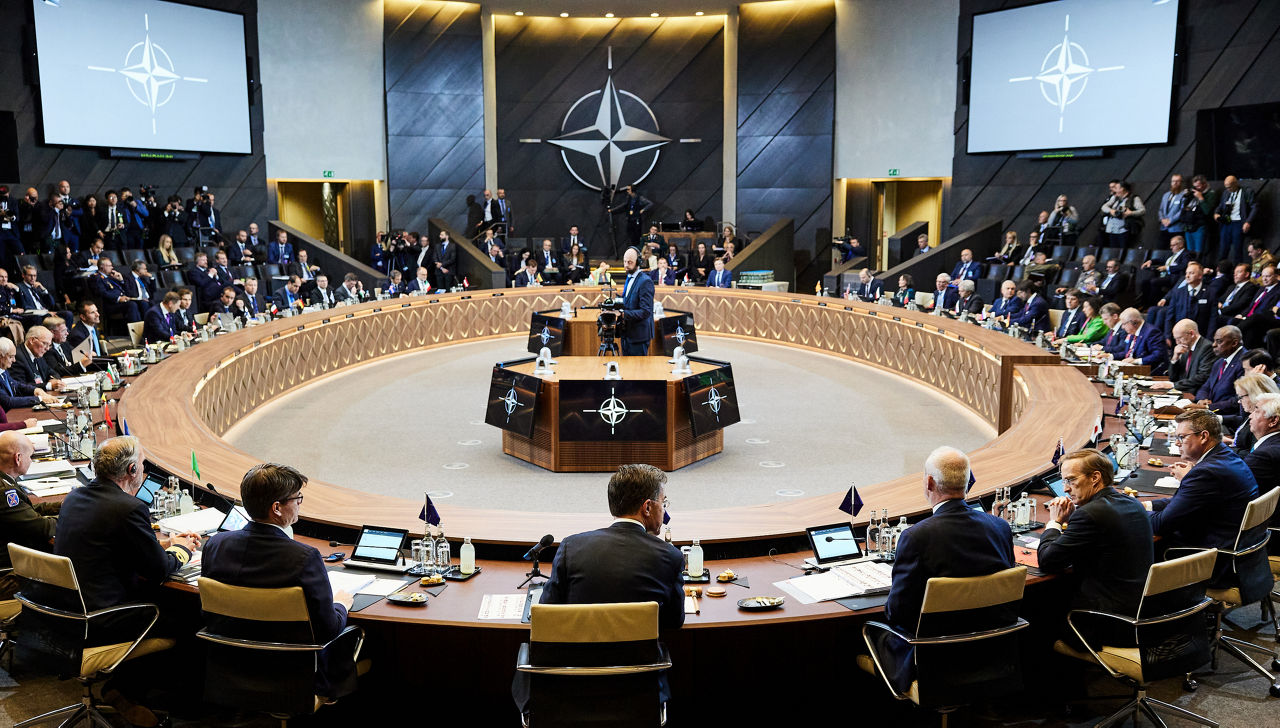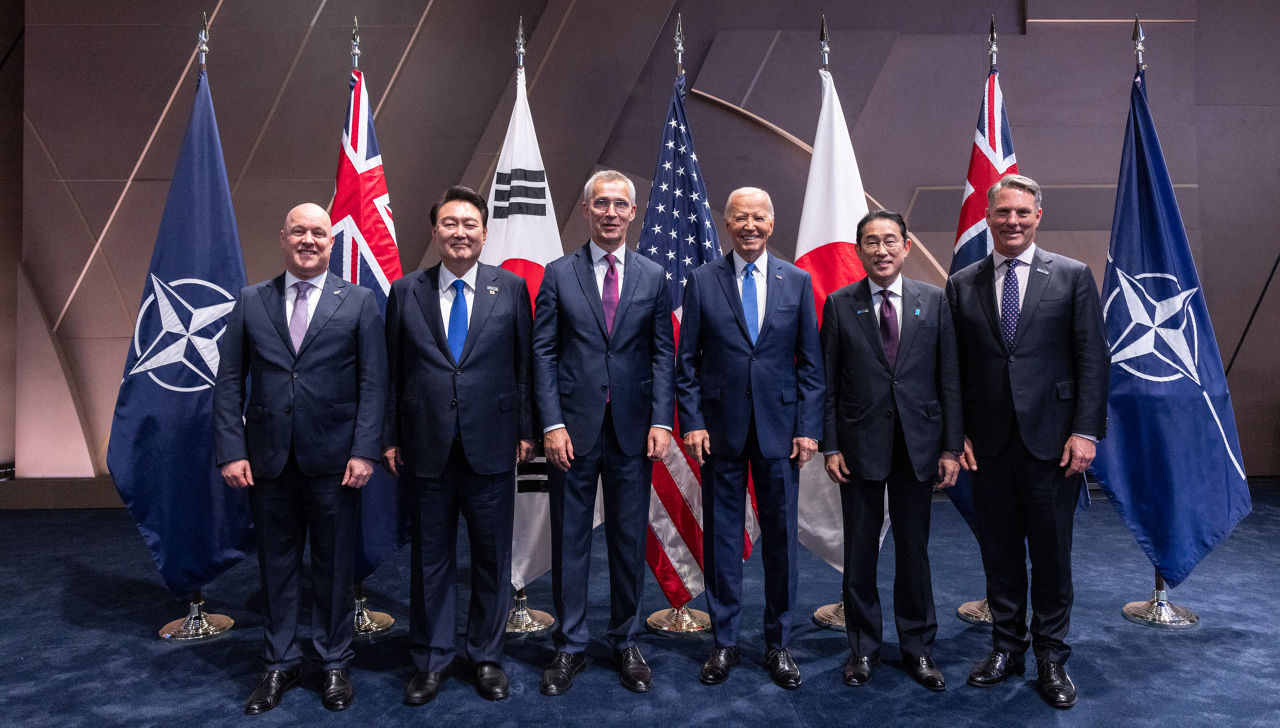Download NATO’s broadcast-quality video content free of charge

Log in
NATO MULTIMEDIA ACCOUNT
Access NATO’s broadcast-quality video content free of charge

Check your inbox and enter verification code
You have successfully created your account
From now on you can download videos from our website
Subscribe to our newsletter
If you would also like to subscribe to the newsletter and receive our latest updates, click on the button below.
Enter the email address you registered with and we will send you a code to reset your password.
Didn't receive a code? Send new Code
The password must be at least 12 characters long, no spaces, include upper/lowercase letters, numbers and symbols.
Your password has been updated
Click the button to return to the page you were on and log in with your new password.
Relations with New Zealand
Updated: 09 July 2025
NATO and New Zealand are strengthening relations to address shared security challenges in areas such as new technologies, cyber defence, and climate change and security, and to contribute to upholding the rules-based international order. They also cooperate as part of NATO’s broader relations with its partners in the Indo-Pacific region. New Zealand has made valuable contributions to NATO-led operations and missions for decades.
- New Zealand is one of NATO’s partners in the Indo-Pacific region, together with Australia, Japan and the Republic of Korea. The Indo-Pacific is important for the Alliance, given that developments in that region directly affect Euro-Atlantic security.
- NATO and New Zealand have been engaged in dialogue and cooperation since 2001. In 2012, New Zealand and NATO agreed their first framework cooperation document, namely the Individual Partnership and Cooperation Programme.
- In May 2024, New Zealand and NATO agreed their latest framework cooperation document, namely the Individually Tailored Partnership Programme, which highlights dialogue and cooperation in several areas of common interest, such as cyber defence, climate change and security, and new technologies.
- Since the very beginning of Russia’s full-scale invasion of Ukraine in 2022, New Zealand has been steadfast in supporting Ukraine’s right to self-defence. This includes contributions to NATO’s Comprehensive Assistance Package for Ukraine, participation in NATO Security Assistance and Training for Ukraine (NSATU), as well as bilateral support.
Political dialogue
- At the 2021 NATO Summit in Brussels, Allies agreed to increase dialogue and practical cooperation between NATO and existing partners, including New Zealand as one of the partners in the Indo-Pacific region. This commitment was reiterated in the NATO 2022 Strategic Concept, the Alliance’s core policy document.
- NATO works with its partners in the Indo-Pacific region against the backdrop of an increasingly complex global security environment, including Russia’s war of aggression against Ukraine, the provision of troops and weapons by North Korea in support of that war, and the deepening strategic partnership between China and Russia.
- In June 2022, the Prime Minister of New Zealand participated in the 2022 NATO Summit in Madrid, together with the Leaders of other partners from the Indo-Pacific (Australia, Japan and the Republic of Korea). In July 2023 at the Vilnius Summit, the country participated in its second meeting at the level of Heads of State and Government. In July 2024, New Zealand, together with other partners in the Indo-Pacific, participated in the NATO Summit in Washington, D.C., where practical cooperation between Allies and these partners was further enhanced, including through the launch of new flagship projects in the areas of support to Ukraine on military healthcare as well as cyber defence, countering disinformation, and technology such as artificial intelligence.
- Since 2022, New Zealand has regularly attended NATO Foreign Ministers’ meetings. This followed the country’s first-ever participation in a NATO ministerial meeting in December 2020. New Zealand participated for the first time in a NATO Defence Ministers’ meeting in October 2024, alongside Australia, Japan and the Republic of Korea.
- New Zealand also regularly participates in meetings held at NATO Headquarters in Brussels between NATO Allies and the four partners in the Indo-Pacific at the level of Ambassadors. Recent meetings have focused on cyber defence, technology and hybrid challenges.
Key areas of cooperation
New Zealand’s cooperation with NATO is mutually beneficial and covers many common security challenges, including:
- Building capabilities and interoperability: An important focus of cooperation is to develop capability between NATO and New Zealand. This includes participation in operations, exercises and training; exchanges of information, personnel and lessons learned; as well as involvement in the development of standards.
- Science and technology: In the framework of NATO’s Science for Peace and Security Programme, cooperation with New Zealand has addressed the topics of counter-terrorism and small states’ responses to salient security challenges.
Support for NATO-led operations and missions
- New Zealand made a significant contribution to the NATO-led International Security Assistance Force (ISAF) in Afghanistan, which completed its mission in December 2014. It led a Provincial Reconstruction Team in Bamyan Province. From 2015 until spring 2021, New Zealand contributed to the Resolute Support Mission to train, advise and assist Afghan security forces and institutions.
- New Zealand contributed twice to NATO’s past maritime counter-piracy operation off the Horn of Africa, Ocean Shield.
- It also contributed to Operation Active Endeavour, a maritime security operation in the Mediterranean.
- Several New Zealand officers served in the NATO-led Stabilisation Force (SFOR) in Bosnia and Herzegovina in the 1990s and early 2000s.




